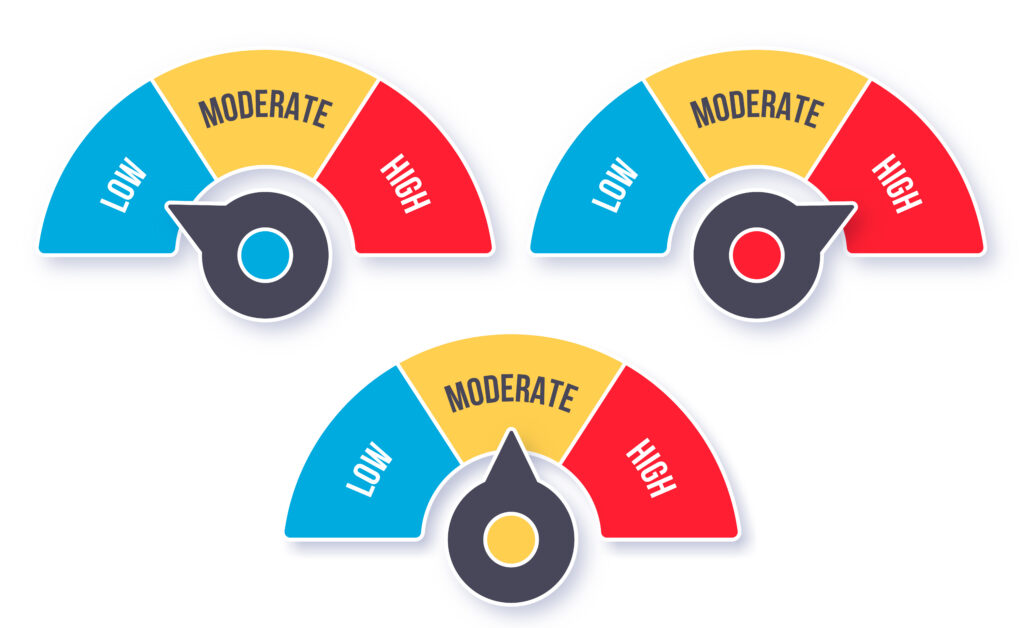The anchoring of inflation expectations is a cornerstone of modern macroeconomic theory and a key measure of central bank credibility. When investors believe inflation will remain close to target over the long term, central banks can influence economic activity effectively by adjusting interest rates in line with the Taylor principle (Bauer, 2015). But if long-term expectations become unstable, markets may doubt the bank’s commitment or capacity to control inflation, diminishing the power of policy decisions.
This issue has come to the forefront in Europe. The European Central Bank’s (ECB) primary, medium-term mandate is to ensure inflation remains stable at 2%. Aggressive monetary tightening by the ECB including rate hikes and quantitative tightening, brought inflation down to 2.5% by June 2024 after it surged to a record 10.7% in October 2022 amid post-COVID supply shocks and energy price spikes. Yet even this level sits slightly above the ECB’s 2% goal, leaving markets and policymakers to ask: has the ECB successfully preserved the anchoring of inflation expectations, or has recent turbulence eroded its credibility?
This blog outlines a broader award-winning thesis by the author who won first prize in the 2024 CFA Society Belgium’s Master Theses Awards and addresses this question by examining how euro-area inflation expectations, measured through inflation-linked swap (ILS) rates, responded to monetary policy shocks between 2013 and 2024. This period spans two critical phases: the pre-COVID years of persistently low inflation and the post-COVID spike. Understanding investor reactions across this timeline sheds light on whether the ECB’s forward guidance, rate adjustments, and quantitative easing (QE) have reinforced or undermined confidence in its inflation target.
What sets this study apart
While earlier research has examined high-frequency market surprises around policy announcements (e.g., Bernanke & Kuttner, 2005; Gurkaynak, Sack & Swanson, 2005; Altavilla et al., 2019), this study introduces new innovations:
It extends the timeline to 2013 to 2024, capturing both the pre-COVID period of low inflation and the post-COVID surge that most prior analyses overlook.
It examines the full-term structure of inflation expectations by analyzing spot and forward ILS rates up to ten-year maturities (García & Werner, 2021; Miccoli & Neri, 2019), providing a more comprehensive view across short, medium, and long-term horizons.
It applies local projections with external instruments, a method shown by Plagborg-Møller & Wolf (2022) to be more robust than traditional Vector Autoregression (VAR) models for shorter samples and horizons.
Finally, it separates pure monetary policy effects from information effects using methodologies inspired by Jarociński & Karadi (2020) and Andrade & Ferroni (2021), distinguishing news about Odyssean shocks, which refer to future policy from Delphic shocks, which are signals about the economic outlook.
What we found was that for the ECB, the results argue for cautious use of forward guidance. While it can shape market expectations effectively, poorly calibrated guidance risks generating Delphic shocks that undermine policy goals. Conventional rate moves and quantitative easing (QE) influence expectations more predictably. Overreacting with overly restrictive policy, however, is unnecessary. The anchoring of long-term expectations suggests that inflation can be steered back to target without jeopardizing growth.
Short-Term Uncertainty, Long-Term Stability
We took the analysis in three parts:
First, we measured how ILS rates respond to four identified types of monetary shocks: target rate set by policy changes, short-term guidance/timing, medium term forward guidance, and quantitative easing (QE). The immediate response of ILS rates to these shocks is muted, but significant movements emerge after 10 to 15 days, a lag consistent with the low liquidity of the euro-area inflation swap market (Miccoli & Neri, 2019).
Restrictive target rate and QE shocks lower near-term inflation expectations up to two years, as theory predicts. By contrast, short-term timing and forward guidance shocks yield weaker, sometimes counterintuitive effects, echoing earlier observations by Altavilla et al. (2019) and Andrade & Ferroni (2021). To address these anomalies, the second stage of this thesis separates Odyssean and Delphic components. By analyzing co-movements between two-year overnight index swaps (OIS) and the Euro STOXX 50 around policy announcements, we classify each shock type (Odyssean future policy and Delphic economic outlook) and in doing we see some surprising reactions of inflation expectations are responses to economic news, not monetary policy per se.
Still, splitting events this way shortens the sample and increases estimation noise. To mitigate this, the final stage applies a new identification strategy treating each event as a mix of three factors: Odyssean timing, Odyssean forward guidance, and Delphic path.
This refined model produces responses consistent with macroeconomic theory: restrictive Odyssean shocks depress near-term expectations by up to 10 basis points, while Delphic shocks raise them. Importantly, the model underscores that forward guidance carries the risk of triggering Delphic shocks if markets misinterpret signals as news about the economic outlook, potentially offsetting its intended effects. This makes conventional measures and QE safer alternatives.
Across all models, five- to-10-year inflation expectations remain unaffected by policy surprises. Even during the extreme volatility of 2022 to 2023, investors did not revise their long-term outlook for euro-area inflation in a way that would suggest de-anchoring. This is strong evidence that, despite the ECB’s delayed response to soaring prices, its 2% target remains credible.
Implications for Investors and Policymakers
For market participants, these findings offer two takeaways:
First, near-term inflation pricing can be sensitive to communication missteps. Investors should consider not only the size and direction of policy moves but also the tone and context of ECB statements, particularly during volatile periods when distinguishing between Odyssean and Delphic signals is difficult.
Second, the persistence of anchored long-term expectations suggests that inflation expectations remain firmly anchored. This credibility helps stabilize financial markets and temper risk premiums even when short-term price movements are volatile.
In sum, even during the recent post-COVID period of high inflation, monetary policy announcements did not lead to a de-anchoring of long-term inflation expectations in the euro area. Consequently, the ECB’s inflation target of 2% appears credible to financial markets, indicating that the ECB may not need to adopt an overly restrictive monetary stance to guide inflation back to its target. For investors, this stability suggests they can place greater confidence in long-term market signals and avoid overreacting to short-term inflation surprises.
Appendix & Citations:
Altavilla, C., Brugnolini, L., Gürkaynak, R. S., Motto, R., & Ragusa, G. (2019). Measuring euro area monetary policy. Journal of Monetary Economics, 108, 162–179.
Andrade, P., & Ferroni, F. (2021). Delphic and odyssean monetary policy shocks: Evidence from the euro area. Journal of Monetary Economics, 117, 816–832.
Bauer, M. D. (2015). Inflation expectations and the news. International Journal of Central Banking, 11(2).
Bernanke, B., & Kuttner, K. (2005). What explains the stock market’s reaction to federal reserve policy? Journal of Finance, 60(3), 1221–1257.
García, J. A., & Werner, S. E. V. (2021). Inflation news and euro-area inflation expectations. International Journal of Central Banking
Gurkaynak, R. S., Sack, B., & Swanson, E. T. (2005). Do actions speak louder than words? the response of asset prices to monetary policy actions and statements. International Journal of Central Banking, 1(1).
Miccoli, M., & Neri, S. (2019). Inflation surprises and inflation expectations in the euro area. Applied Economics, 51(6), 651–662.
Plagborg-Møller, M., & Wolf, C. K. (2022). Instrumental Variable Identification of Dynamic Variance Decompositions. Journal of Political Economy, 130(8), 2164–2202.
Jarociński, M., & Karadi, P. (2020). Deconstructing monetary policy surprises— the role of information shocks. American Economic Journal: Macroeconomics, 12(2), 1–43.




























